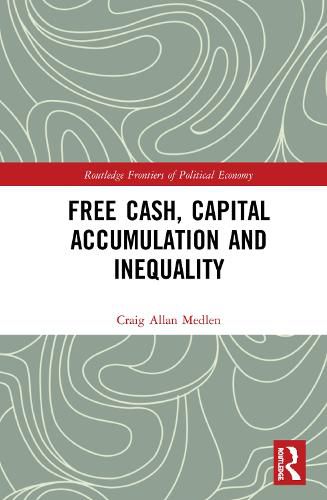Readings Newsletter
Become a Readings Member to make your shopping experience even easier.
Sign in or sign up for free!
You’re not far away from qualifying for FREE standard shipping within Australia
You’ve qualified for FREE standard shipping within Australia
The cart is loading…






Investment is the engine of growth. In consequence, the social welfare of the populace depends on the expectations of uncertain profitability as understood by the agents of a wealthy few who decide upon levels of investment. As private wealth is intimately tied to the investment process, the importance of wealth concentration goes far beyond considerations of equity. In recent years, private economic power has become increasingly concentrated as more of the population has become dependent upon an elite pursuing private ends. In this context, this book examines the role of capital accumulation in various historical contexts.
Over seventy years ago, Michal Kalecki derived the mathematical relationship between government deficits, the external trade account and free cash-defined as the gross profit over and above that portion ploughed back into new investment. Since then, the free cash literature has remained largely within an industrial organizational context where free cash theory has helped to explain mergers. In contrast, this book, revisits Kalecki’s free cash construction at the macro and global level and explores the various causes and effects of free cash on the economy. As part of this examination, the author highlights the historical uses of free cash in imperialist adventures, mergers and speculative endeavours. In addition to developing a new relative valuation measure of capital accumulation, he also utilizes a neo-Kaleckian model to help explain the U.S. slowdown in investment since the late 1960s, the increasing inequality of wealth and income and the recent speculative episodes associated with the spillage of free cash. Finally, based on these models the book argues for heightened taxes on the wealthy and an increased role for government investment in health care and energy.
Free Cash, Capital Accumulation and Inequality offers an explanation as to how wealth and income inequalities have fashioned, and been fashioned by, various historical episodes right up to the present. It will be of great interest to those studying and researching in the field of economic analysis.
$9.00 standard shipping within Australia
FREE standard shipping within Australia for orders over $100.00
Express & International shipping calculated at checkout
Investment is the engine of growth. In consequence, the social welfare of the populace depends on the expectations of uncertain profitability as understood by the agents of a wealthy few who decide upon levels of investment. As private wealth is intimately tied to the investment process, the importance of wealth concentration goes far beyond considerations of equity. In recent years, private economic power has become increasingly concentrated as more of the population has become dependent upon an elite pursuing private ends. In this context, this book examines the role of capital accumulation in various historical contexts.
Over seventy years ago, Michal Kalecki derived the mathematical relationship between government deficits, the external trade account and free cash-defined as the gross profit over and above that portion ploughed back into new investment. Since then, the free cash literature has remained largely within an industrial organizational context where free cash theory has helped to explain mergers. In contrast, this book, revisits Kalecki’s free cash construction at the macro and global level and explores the various causes and effects of free cash on the economy. As part of this examination, the author highlights the historical uses of free cash in imperialist adventures, mergers and speculative endeavours. In addition to developing a new relative valuation measure of capital accumulation, he also utilizes a neo-Kaleckian model to help explain the U.S. slowdown in investment since the late 1960s, the increasing inequality of wealth and income and the recent speculative episodes associated with the spillage of free cash. Finally, based on these models the book argues for heightened taxes on the wealthy and an increased role for government investment in health care and energy.
Free Cash, Capital Accumulation and Inequality offers an explanation as to how wealth and income inequalities have fashioned, and been fashioned by, various historical episodes right up to the present. It will be of great interest to those studying and researching in the field of economic analysis.